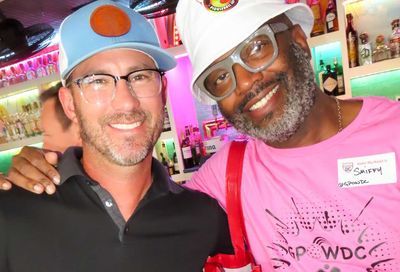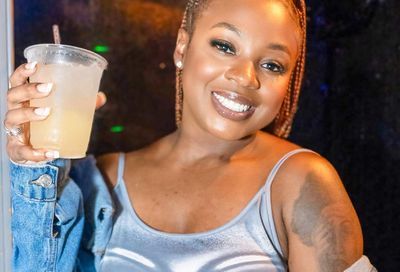Seeing Trayvon
Overcoming the blindness of prejudice requires reaching across our contentious diversity
The man who stalked and killed Trayvon Martin is cleared of all charges, and a flood of disbelief and outrage pours across my computer screen: “My sense of justice is shattered.” “Florida is overtaking California in the race for ‘Best State to Kill Someone and Get Away With It.'” “Michael Vick got more punishment for killing a dog.” All I can see is Tracy Martin weeping over his lost son.
You cannot deny people justice, make it clear that their lives are worth less, and then command their respect. This country is not an anthem or a public-relations campaign. It is a living thing, and has been wounded by the acquittal of another in a long string of killers of unarmed black men and youth. We have much work to do to create our country. I am ashamed of the one I see.
A friend asks, “What do we tell our children?” We tell them to strive to leave this country more just than they found it. We give them the history to inform them and the tools to carry on the struggle.
We must not merely vent and withdraw in disgust and despair. That is what the bullies and defenders of privilege want. We need to recognize and declare that this is our country, too. And we have to fight for it – not with guns and truncheons, but, as Dr. King said, “on the high plane of dignity and discipline.”
In 2009, I called Dr. Amos Brown, the NAACP president in San Francisco, to thank him for his outspoken support for marriage equality. He told me about something else he was dealing with, the killing of a handcuffed and unarmed black man, 22-year-old Oscar Grant, by a police officer in a Bay Area Rapid Transit station in Oakland on New Year’s morning.
During the trial of Grant’s killer (who ended up serving 11 months of a two-year sentence), Rev. Brown urged people to respond peacefully, to light a candle instead of cursing the darkness. I need those words now. We must do more than lash out. We must organize and build.
An exemplar of lighting a candle in the darkness is young film director Ryan Coogler, who was Oscar Grant’s contemporary and grew up in Oakland. His debut feature, Fruitvale Station, now showing, portrays the last day in Grant’s life. It won top jury and audience prizes at Sundance and was honored at Cannes. Coogler earns raves for his storytelling, his craft, his eye and ear for detail. He says, “Film can trigger empathy in you for characters that you haven’t met. … You get to live as somebody else; you get to see different perspectives.”
On the day of George Zimmerman’s acquittal, I came upon a photo of Trayvon lying dead at the murder scene. Oh my God. I didn’t plan to see that. It is stark and devastating. He is so young, his eyes open as if in disbelief. I recalled the horrifying 1955 photo of the murdered Emmett Till (don’t Google him if you are squeamish), whose mother Mamie ordered an open casket so people could “see what they did to my son.”
Overcoming the willful blindness of prejudice requires the risk of touching one another across our contentious diversity. Like Coogler in Fruitvale Station, we must replace the cardboard cutouts with living, breathing human beings.
Changing hearts and minds takes boldness, imagination and skill. Millions this summer will be moved by the work of a 27-year-old filmmaker with astonishing artistic maturity, who has enough faith in his subject and in us to tell a complex truth with a beating human heart at its center. He hands us the key to our victory over the dark.
Richard J. Rosendall is a writer and activist. He can be reached at rrosendall@starpower.net.
Support Metro Weekly’s Journalism
These are challenging times for news organizations. And yet it’s crucial we stay active and provide vital resources and information to both our local readers and the world. So won’t you please take a moment and consider supporting Metro Weekly with a membership? For as little as $5 a month, you can help ensure Metro Weekly magazine and MetroWeekly.com remain free, viable resources as we provide the best, most diverse, culturally-resonant LGBTQ coverage in both the D.C. region and around the world. Memberships come with exclusive perks and discounts, your own personal digital delivery of each week’s magazine (and an archive), access to our Member's Lounge when it launches this fall, and exclusive members-only items like Metro Weekly Membership Mugs and Tote Bags! Check out all our membership levels here and please join us today!



















